More of my favorites discoveries of 2012, new and sometimes very, very old...
I'd already become enamored with the films of Rainer Werner Fassbinder prior to this year. Smart, satirical, stylish and soulful... Even socially conscious. With his reputation for being controversial, progressive and astoundingly prolific, it's like constant revelation moving through Fassbinder's filmography. He died at age 37 with approximately 40 filmed works as director, actor, writer, producer, designer, editor and camera man. A bold visionary at the head of New Wave German Cinema, Fassbinder lived fast and died young, and his films reflect that with a relevance and human understanding that's unmatched.
Often mimicking and desecrating the old Hollywood tropes, Fassbinder's career might seem intimidating at first glance. The knowing artifice in the acting, the minimal sets, the precise compositions and staging... Social politics in West Germany and the perils of fascism... I'm sure many assume they're pretentious, or stilted even. To the contrary Fassbinder's films often prove that poignancy and politics can go hand in hand. He consistently and carefully constructs small character stories within the grander schemes -- proving a masterful ability to marry the intellectual with the emotional. As any of Fassbinder's conflicted characters would tell you, it gets mighty difficult to discern matters of the head from matters the heart.
It's odd then that it was Fassbinder's last film, Querelle, that marked my first foray into his work. One of his most detached and least accessible on some level, even if it's his most immediately enticing. A surreal gay fantasia involving sexy sailors played by Franco Nero and Brad Davis in that tiny white shirt... It's a movie that fills all of my cinematic desires as perfectly as... Brad Davis does that tiny white shirt.
But I'd go so far as to say Querelle is one of Fassbinder's weaker films, only in that it downplays his real gift for compelling character drama and powerful plot turns. Much to my surprise, I found myself in better company with the lethargic lesbians of The Bitter Tears of Petra Von Kant. Then onto the depressingly personal and theatrical In a Year with Thirteen Moons, Fox and His Friends, and the bittersweet, ageless love story of Ali: Fear Eats the Soul -- perhaps Fassbinder's most accessible and widely acclaimed film.
The man has made so many impeccable works of art - of every variety - and they're each so singularly fascinating, so singularly... Fassbinder.
Among my 2012 Fassbinder revelations...
MARTHA (1974)
Drama, psychological thriller, dark comedy... Whatever you want to call it, Martha is first-rate. A TV-movie that has the nerve to approach sado-masochistic relationships with the very same approach to it's audience. A timid spinster finds herself falling for a cruel man -- their sick bond unraveling with nervous tension and pitch black delight. It's brittle, funny, and just brutal at times. I often debate (with myself, of course) over which Fassbinder leading lady is my favorite. I'm tempted to give the edge to Margit Carstensen, remarkable here as a woman who's purely sympathetic and tragically pathetic in each extreme. And Karl Heinzbohm impresses as another disturbed sadist that could rival his own Peeping Tom. The sun tan scene, in particular, is one for the books.
WORLD ON A WIRE (1973)
I'd already rank this humbly among the best science fiction films I've ever seen. A riveting small-scale TV thriller that has the boldness and brains to rival something as big and bombastic as The Matrix. The films vary completely in approach but touch on a lot of the same themes -- questioning reality while dissolving such a notion entirely. eXistenZ would make a better companion, following an engineer seeking the truth within an alternate reality system known as Simulacron. It's all food for thought and there's plenty to chew on with its four-hour-plus runtime. Through its captivating and complex retro-future chic, it ends up feeling like necessary sustenance. It was ahead of its time and no less valuable today. Once again carefully composed through glass and mirrors, World on a Wire is elegant, multi-layered, and worth every reflection.
THE BRD TRILOGY:
The Marriage of Maria Braun (1979)
Lola (1979)
Veronika Voss (1981)
Taking cues from Sirk and Sunset Boulevard, this dense, diverse trilogy follows three female characters alternately climbing and crushed under a capitalist system. The title refers to the Bundesrepublik Deutschland and then volatile state of West Germany, but these characters struggles with power, corruption and the heart's compulsion, feel entirely relevant to the western world. There's endless artistry in the melodramatic ache of The Marriage of Maria Braun, the vibrantly colorful allure of Lola, and the thrilling but sad destruction of Veronika Voss (in sparkling and stark black-and-white). Each film blends smart social commentary with stylistic reinvention and humor. Passionate power plays that also double as political statements. Much like the ladies who lead these revolutionary films (Hanna Schygulla, Barbara Sukowa and Rosel Zech), they're brash, beautiful AND they've got something to say.
I graciously have a wealth of Fassbinder's career still to uncover, but there are a few more I've had the pleasure of discovering in 2012, ones fans should seek out eventually... Most notably The Third Generation (1979), a scathing and absurd comedy about terrorism, the bleak black comedy of Why Does Herr R. Run Amok? (1970), the bizarre fascist family game of Chinese Roulette (1976), desperate housewife turned communist in Mother Kusters Goes to Heaven (1975), revisionist camp western Whity (1971), and the comically oddball Satan's Brew (1976).




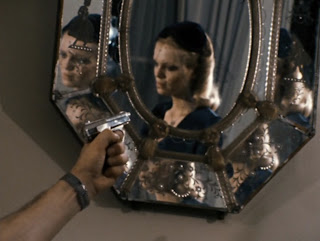



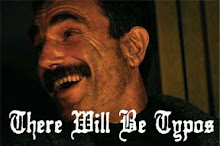
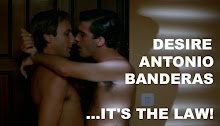
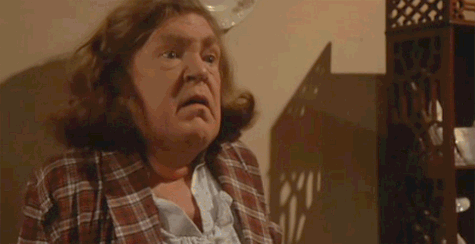
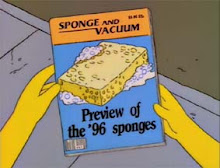
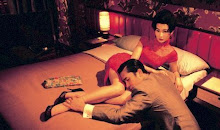



No comments:
Post a Comment